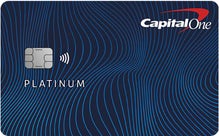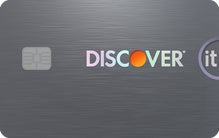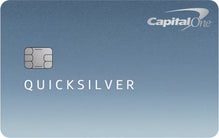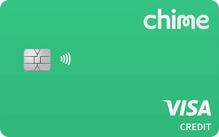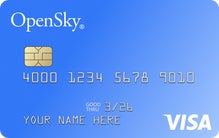Best credit cards for no credit history in August 2024
Advertiser Disclosure: The listings that appear on the website are from credit card companies from which Bankrate receives compensation. This compensation may impact how and where products appear on this site (including, for example, the order in which they appear). This site does not include all credit card companies or all available credit card offers. Here's an explanation for and how we rate our cards.
Best Credit Cards for No Credit History: Top Picks for 2024
- Discover it® Student Cash Back: Best for students
- Capital One Platinum Secured Credit Card: Best for credit line upgrade
- Discover it® Secured Credit Card: Best secured card for gas and dining
- Capital One Quicksilver Secured Cash Rewards Credit Card: Best starter rewards card
- Chime Credit Builder Secured Visa® Credit Card: Best for flexible deposit
- Self - Credit Builder Account with Secured Visa® Credit Card: Best for building credit with savings
- OpenSky® Secured Visa® Credit Card: Best for no credit check
Filter by:
Showing 7 results
Intro offer
Cashback Match
Rewards Rate
1% - 5%
Annual fee
$0
Regular APR
18.24% - 27.24% Variable APR
Why you'll like this: This card is every bit as valuable as its non-student counterpart, which is rare for a student card.
Best for credit line upgrade
Intro offer
N/A
Annual fee
$0
Regular APR
29.99% (Variable)
Why you'll like this: This card could give you a credit limit higher than your security deposit, which can give you some breathing room while you build your credit.
Best secured card for gas and dining
Intro offer
Cashback Match™
Rewards Rate
1% - 2%
Annual fee
$0
Regular APR
28.24% Variable APR
Why you'll like this: This card earns twice as many rewards as most other cards’ base rewards rates in two popular spending categories.
Best starter rewards card
Intro offer
N/A
Rewards Rate
1.5% - 5%
Annual fee
$0
Regular APR
29.99% (Variable)
Why you'll like this: Its solid flat rate matches the flat rewards rate of most other cards, despite its status as a secured card.
Best for flexible deposit
Intro offer
N/A
Annual fee
None
Regular APR
N/A
Why you'll like this: You can build credit in a safer manner compared to other cards, without worrying about extra fees and high interest rates.
Best for building credit with savings
Intro offer
N/A
Annual fee
$25
Regular APR
28.74% (Variable)
Why you'll like this: You can diversify your credit mix with just one product to build credit fast — and without a security deposit.
Intro offer
N/A
Annual fee
$35
Regular APR
25.64% (variable)
Why you'll like this: With solid financials, you can deposit up to $3,000 to establish a strong credit line with plenty of breathing room to build credit.
Remove a card to add another to compare
Remove a card to add another to compare
Compare Bankrate's top credit cards for no credit history
| Card name | Best for | Annual fee | Regular APR | Bankrate review score |
|---|---|---|---|---|
|
Students |
|
Intro Offer: Cashback Match
Intro Offer: Unlimited Cashback Match for all new cardmembers – only from Discover. Discover will automatically match all the cash back you’ve earned at the end of your first year! So you could turn $50 cash back into $100. Or turn $100 cash back into $200. There’s no minimum spending or maximum rewards. Just a dollar-for-dollar match.
Regular APR: 18.24% - 27.24% Variable APR
|
5.0 / 5 Our writers, editors and industry experts score credit cards based on a variety of factors including card features, bonus offers and independent research. Credit card issuers have no say or influence on how we rate cards.
Apply now
on Discover's secure site
|
|
|
Credit line upgrade |
|
Intro Offer: N/A
Regular APR: 29.99% (Variable)
|
4.1 / 5 Our writers, editors and industry experts score credit cards based on a variety of factors including card features, bonus offers and independent research. Credit card issuers have no say or influence on how we rate cards.
Apply now
on Capital One's secure site
|
|
|
Secured card for gas and dining |
|
Intro Offer: Cashback Match™
Intro Offer: Unlimited Cashback Match - only from Discover. Discover will automatically match all the cash back you've earned at the end of your first year! There's no minimum spending or maximum rewards. Just a dollar-for-dollar match.
Regular APR: 28.24% Variable APR
|
4.5 / 5 Our writers, editors and industry experts score credit cards based on a variety of factors including card features, bonus offers and independent research. Credit card issuers have no say or influence on how we rate cards.
Apply now
on Discover's secure site
|
|
|
Starter rewards card |
|
Intro Offer: N/A
Regular APR: 29.99% (Variable)
|
4.0 / 5 Our writers, editors and industry experts score credit cards based on a variety of factors including card features, bonus offers and independent research. Credit card issuers have no say or influence on how we rate cards.
Apply now
on Capital One's secure site
|
|
|
Flexible deposit |
|
Intro Offer: N/A
Regular APR: N/A
|
4.2 / 5 Our writers, editors and industry experts score credit cards based on a variety of factors including card features, bonus offers and independent research. Credit card issuers have no say or influence on how we rate cards.
Apply now
on Chime's secure site
|
|
|
Building credit with savings |
|
Intro Offer: N/A
Regular APR: 28.74% (Variable)
|
3.1 / 5 Our writers, editors and industry experts score credit cards based on a variety of factors including card features, bonus offers and independent research. Credit card issuers have no say or influence on how we rate cards.
Apply now
on Self's secure site
|
|
|
No credit check |
|
Intro Offer: N/A
Regular APR: 25.64% (variable)
|
3.1 / 5 Our writers, editors and industry experts score credit cards based on a variety of factors including card features, bonus offers and independent research. Credit card issuers have no say or influence on how we rate cards.
Apply now
on Capital Bank's secure site
|

